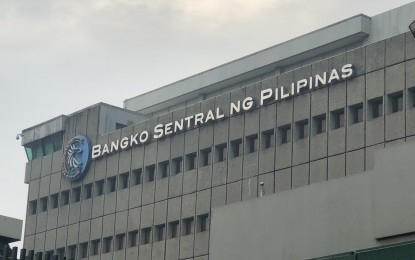
MANILA – Economists forecast a steady policy rate for the Bangko Sentral ng Pilipinas (BSP) this year as inflation remains elevated, which is projected to even rise to around 5 percent level in the coming months.
This, after the domestic inflation rate accelerated to its two-year high in February 2021 when it jumped to 4.7 percent from month-ago’s 4.2 percent.
In a report, ING Bank Manila senior economist Nicholas Mapa said BSP Governor Benjamin Diokno has “quelled concerns about a possible policy rate hike in the near term, highlighting the supply-side nature of the recent surge in prices.”
“Diokno, however, did indicate that monetary authorities were on the lookout for signs of second-round effects (wage or transport fare adjustments) and if the recent spike in prices could affect the inflation outlook over the policy horizon,” he said.
Mapa said the BSP chief is optimistic about easing inflation rate in the second half of the year as measures to address the supply constraints on food items take effect.
“We expect BSP to remain sidelined for 2021 while inflation will likely remain elevated in the near term before gradually decelerating by the 3Q (third quarter),” he said, adding “the PHP (Philippine peso) will likely move sideways as Diokno suggest that a rate hike is not on the table for now.”
Last year, monetary authorities reduced the BSP’s key policy rates by a total of 200 basis points to help address the economic impact of the pandemic.
HSBC economist Noelan Arbis said supply-side factors remain the main driver of upticks in the domestic inflation rate but “the sequential pace of price increases appears to be normalizing.”
“We expect the Bangko Sentral ng Pilipinas (BSP) to keep its policy rate on hold at 2.00 percent in 2021 and to begin tightening in 2022,” he said.
He forecasts average inflation this year to be around 4.7 percent while he projects next year’s average inflation rate at 2.6 percent.
Although “BSP officials appear to remain unperturbed” by the upside risks to the domestic inflation rate and discount any need to hike key policy rates, Arbis said “we believe the outlook for inflation remains highly uncertain” since prices of some commodities continue to rise in the international market.
“We expect the BSP to keep its policy rate on hold this year. We believe any additional rate cuts at this juncture would continue to build unwanted inflationary pressures. We also forecast 75bp of rate hikes in 2022 (to 2.75 percent), as long periods of negative interest rates pose inflationary and financial stability risks,” he added.
In a report, BPI projects the rise of the inflation rate to the 5 percent-level starting in April and this is expected to last until around the third quarter of the year.
It forecasts inflation to average at 4.3 percent this year, higher than the government’s 2-4 percent target band until 2023.
“Inflationary pressures will likely prevent the BSP from cutting its policy rate further,” the report said, citing that “expanding the negative spread between the interest rate and inflation may harm the economy in the long run and exacerbate portfolio outflows that could drive volatility in the currency market.”
However, the report said while chances of a BSP rate cut this year are small because of the economic situation “we are not discounting this especially if inflation becomes unmanageable.”
“The BSP might justify its current policy stance by citing the supply-side nature of the inflation problem and the limitation of monetary policy in address(ing) this,” it said. (PNA)
